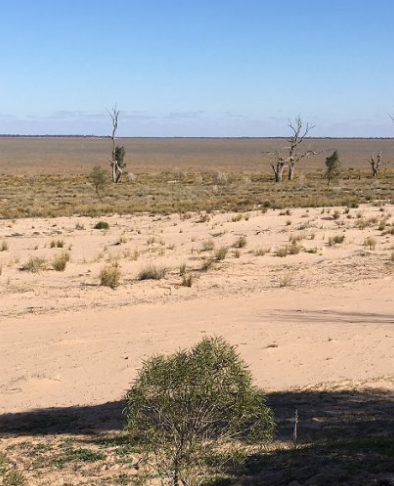Locals want Darling supergroup
 Native title holders in far-west New South Wales have proposed a major cross-agency organisation to manage the Darling River.
Native title holders in far-west New South Wales have proposed a major cross-agency organisation to manage the Darling River.
Barkandji native title holders want to set up the Baaka Water Commission, bringing together state and federal politicians, department heads and bureaucrats, and Indigenous and non-Indigenous stakeholders.
Barkandji translates to “people of the Baaka” - the traditional name for the Darling River. The Indigenous group won native title over a significant area of the state’s outback in 2015.
The Baaka stopped flowing entirely in 2018 and is now almost completely dry.
Barkandji Native Title Prescribed Body Corporate chief Derek Hardman says the river needs to be managed in a holistic way by local, state and federal authorities.
“At the moment, we're split. There's southern, northern, there's lower Darling, upper Darling,” Mr Hardman has told the ABC.
“For us there is no separation, we are one.
“We don't exist as a bottom half or the top half … We're here to represent ourselves and that's our cultural right to do that.”
The new commission is outlined in a document that has been put to all levels of government.
It aims to redesign management systems and allocate government funding to focus on outcomes for vulnerable communities and environments.
“Basically no-one's talking to us, except when something happens like the fish die, or they need something in a report and they give us two weeks' notice to put something together,” Mr Hardman said.
“It's not realistic, it's not the way you work with people. We want self-determination for our people, and not just our people but everybody that lives and relies on the Baaka.”
The Murray-Darling Basin Authority (MDBA) says it wants a strong voice for Aboriginal communities on water issues.
“The MDBA would be happy to be involved in discussions that arise from the proposal,” a spokesperson said this week.
“The MDBA regularly provides information and seeks feedback on water management issues with the Northern Basin Aboriginal Nations, and the Murray Lower-Darling Rivers Indigenous Nations, which represent more than 40 Aboriginal nations across the Murray–Darling Basin.
“[It] agrees that it is important for all stakeholders to work together to manage water resources in the Basin.”
Recent Federal Government legislation has mandated the creation of an Indigenous board position at the Authority.








 Print
Print